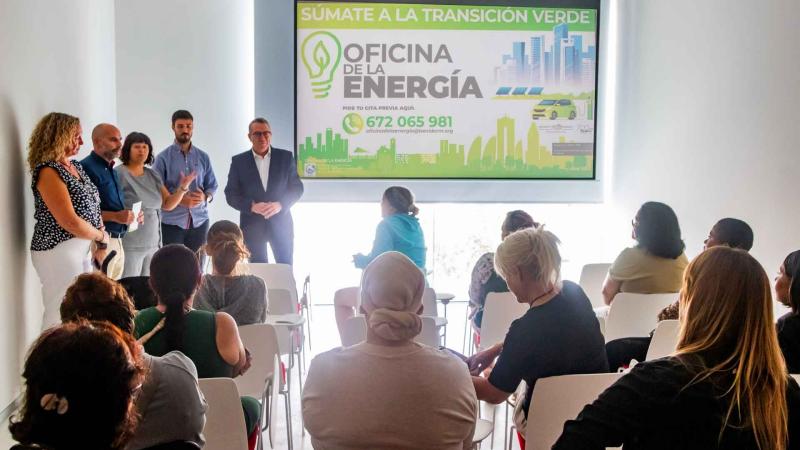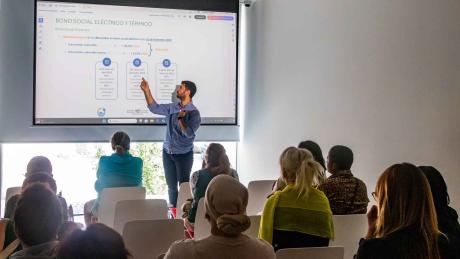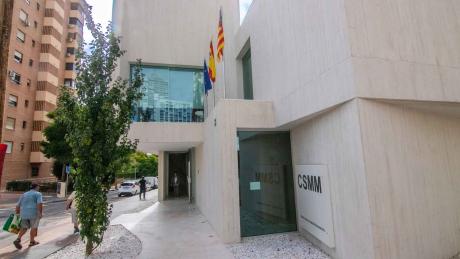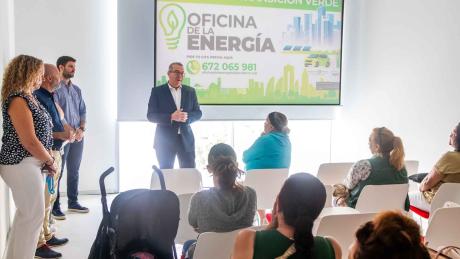This is the first course hosted by the Municipal Mediation Center and is attended by thirty people
The Energy Office is organizing an energy-saving workshop for social security beneficiaries

Benidorm Social Mediation Centre hosted the "Energy Consumption and Risk Prevention" workshop today, attended by around thirty beneficiaries of the town's electricity and heat social voucher.
The workshop, the first held at the Mediation Centre, is part of the activities organised by the Benidorm Energy Office in collaboration with the Department of Social Welfare. Its objective is to advise vulnerable people on how to reduce their energy bills, facilitate their access to support lines, and promote self-consumption.
The Mayor of Benidorm, Toni Pérez, and the Councillors for Urban Scene, the department under which the Energy Office reports, Francis Muñoz, and for Social Welfare, Ángela Zaragozí, attended the workshop to inform the participants about some of the energy-saving initiatives undertaken by the City Council.
Toni Pérez greeted the attendees and encouraged them to "do the things we can do every day" to save energy. The mayor explained that "years ago" the City Council's energy bill was "three million euros, and we started looking for new ways to save and lowered it to 1,700,000."
Unfortunately, "with the increase in the energy bill [VAT from 10% to 21% and CPI], it once again exceeds three million" today. However, "we continue working to ensure more efficient energy that costs taxpayers less," which is why we have launched the Energy Office, the mayor explained.
The Energy Office has been operational since September at City Hall and, on a mobile basis, at all Administrative Extension Offices. Any citizen or business can access the service by appointment by calling 672 065 981.
Workshops for vulnerable people
The Department of Social Welfare organises free courses for vulnerable people in all of Benidorm's social service centres (La Torreta, Pepa Esperanza Llinares, Jelena, Tanit, and Llorca Linares) and the Mediation Centre. These courses are taught by Primary Care teams and cover topics such as home economics, diversity, responsible consumption, equality, and others, with the aim of training and assisting vulnerable people.



